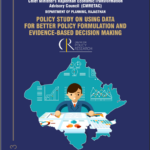
Who Abets Corruption?
25 November 2022
During the National Vigilance Week, a couple of weeks back, I was called to give a presentation at a prominent Bengaluru-based Public Sector Organisation. This happens every year when PSU Chief Vigilance Officers run a campaign to lay stress on anti-corruption measures and the need to maintain vigilance. Clearly, there is a concerted effort amongst the bureaucracy to place stress on measures to reduce and hopefully, eliminate corruption.
Do these steps work?
The evidence does not look great. India languishes low in the Corruption Perception Index of Transparency International. Our score stands at a poor 40 out of a possible 100 marks. Further, we have dropped a point in the last couple of years, from 41 to 40. We rank 80th in position, but that is because other countries are overtaking us in the rankings.
One of the reasons why corruption continues to happen and prosper is because private citizens accept it uncomplainingly. At first, this may sound like an abdication of responsibility; after all, indeed the government is supposed to take the initiative to reduce corruption, not the people. That’s the conventional wisdom that is thrown at one, every time one speaks of corruption. Furthermore, if one persists with the contention that the public has a great deal to do in the war against corruption, the standard excuse that is aired is that the public knows no better; we are a poor and uneducated country.
Nothing could be further from the truth.
Recently, an anti-corruption crusader I know well related to me an incident. She lives in a gated community. The owners of houses there are by no means poor; they are the crème a la crème of society, those who run successful businesses and live busy professional lives. The service that they wanted from the government was also not something that the poor want or can afford.
They wanted a bar licence for their community’s clubhouse. And they wanted the help of my friend to obtain the licence. They, of course, had been to an ‘agent’, who promised to organise the licence. The agent wanted a professional consultation fee of ₹70 lakh, which translated to ₹14,000 for each resident. A small, affordable sum of money. Everything was above board, they said. The money was to be collected through bank payments and the payment to the agent was also to be made by electronic means. When such was the case, how could anything be an underhand dealing, they asked.
My friend made preliminary enquiries with the excise department and an honest officer told her that everything had been streamlined. The application was to be made online and certain conditions were prescribed, with which the applicant had to comply. The fee chargeable was a fraction of the ₹70 lakh that the agent had demanded. With this information in hand, my friend told the group quite firmly that she would not be a party to bribery. She forcefully made it clear that not only the payer of such payments would be committing a crime, but that a whistleblower could get such payers into trouble.
That news was greeted with petulance and bad grace. A meeting was called, where successful professionals justified the payments as ‘necessary’, ‘convenient’, and ‘affordable’. The minority of those who wished to proceed with the application legitimately were told that they were ‘impractical’ and ‘rigid’ and that ‘this was the way of life’ in India. Many of those who aired such views had worked abroad. They knew the ways of the world and that such payments were unnecessary abroad.
However, finally, an interesting thing happened. A group of people decided that they would not pay bribes for this at any cost. They used the word ‘bribe’ frequently, much to the embarrassment of those who favoured payments, who preferred to use the term ‘consultancy fee’ to sugarcoat the bribe. The matter was put to the vote and the nay-sayers had their way, with a caveat. A time frame was fixed for getting the licence without payment of a bribe, or consultancy fee, as some wanted to term it. After that, they would go through the agent, said those who justified the fee. It will still be a crime, retorted the nay-sayers.
Why do rich people pay bribes? Why do people who know processes, or have the capacity to know them, still pay bribes? Why do they couch their culpability in misleading terms? Where is the moral compass? Why do they blame the poor, without turning a hair? Why do they find strength in numbers?
Many researchers into anti-corruption, preferred to look at solutions to corruption from an economic dimension alone. They diminished the importance of the moral dimension. For a long time, as someone who works on anti-corruption, I tended to be influenced by them. Now I am beginning to think otherwise. We are corrupt because we have no moral compass.
The views are of the author and do not represent an institutional stand.
T.R. Raghunandan is an Advisor at the Accountability Initiative.
Also Read: Observations on Obfuscation through E-Governance





